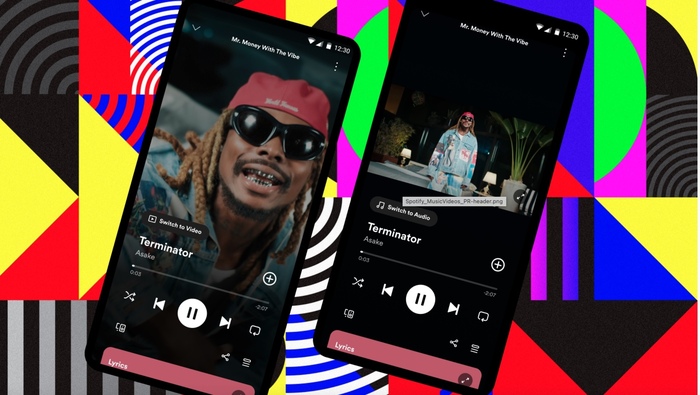It is difficult to say if the stereotypes arise from the regularities of reality or are caused by the generalizations of fiction.
Surely Francis Ford Coppola (and the novelist Mario Puzo) were inspired by the reality of the mafia to create
The Godfather
(a horse's head in bed as a threat?), but also surely the gangsters of flesh and blood from now on they imitated those of the cinema when carrying out their criminal activity.
In the case of
The Sopranos
, somewhat redneck mobsters, there is another great twist: fictional characters imitate other fictional characters.
The series
The Playlist
(Netflix) tells such an astonishingly stereotypical technological success story that we don't know if the creation of Spotify (which is what the series is about) has been adapted to the story already established in the popular imagination, after years of mythology about the magic of entrepreneurship, or if the protagonists were stereotypes with legs, perhaps influenced, like
The Sopranos
, for that same story repeated a thousand times.
Perhaps today every young tech entrepreneur in the world is imitating at home, far from San Francisco, the archetypal story of tech companies, not unlike the one we've been told about Apple, Facebook, or Google (and with the same threadbare sweatshirts).
A story dealt with by other audiovisual products such as
Halt and Catch Fire
or
The Social Network
, and which satirises
Silicon Valley
.
A still from 'The Playlist', with Edvin Endre (left) as Daniel Ek, Christian Hillborg as Martin Lorentzon and Gizem Erdogan as Petra Hansson.
In the series (at least in the series) Daniel Ek, co-founder of the music platform, is a programming
freak
who eats kebabs while he pirates songs at home watching TV and dreaming of changing the world through the tsunami of the internet.
His partner, Martin Lorentzon, is an investment shark with elegant tailored suits but rabidly partying, crazy and ambitious.
And the office of the up
-and-coming green
startup is full of long-
haired geeks
throwing balls of paper at each other, putting their legs up on the table, making a constant racket and, you won't believe it, relaxing by playing that table football. that it is already an icon of technological entrepreneurship of our time (and that in the real world it is usually a decorative artifact to provide
coolness
to the company on duty).
Despite the accumulation of clichés, the series is seen with the pleasure of humming the chorus of a song that he knows very well.
The story begins in the middle of the first decade of this century, when the recording industry fell off the precipice opened by file-sharing applications such as the pioneering Napster and later others such as Audiogalaxy or the Swedish website The Pirate Bay.
It is precisely in Sweden, and not in Silicon Valley, where Ek wants to create a legal and much more functional and less cumbersome version of that pirate page that he has the record companies on edge.
The story, which is already a kind of "hero's path" of our time, is that of young visionaries who have to fight against the skepticism of those around them, obtain licenses and financing, to end up achieving worldwide success, not without first leaving a good part of his convictions and his relationships along the way.
The digital version of the American dream.
Martin Lorentzon (left) and Daniel Ek, founders of Spotify (in real life).
One of the crucial aspects of this story, and which is left for the last chapter, is that, although Spotify is not the hack it was inspired by, it does not offer the best conditions to artists, who once again take away the worst part within the racket set up between large companies and the platform.
Also important is that Spotify (and this topic, surprisingly, is not covered in the series) has completely changed not only the way music is produced and distributed, but also the way we listen to it (or rather, consume it).
What many of us discovered with the arrival of the platform, beyond the previously unthinkable prodigy of having all the music in the world on our smartphone, is that the taste for this art was not just a taste for a few notes, some chords, some lyrics, but that it had a lot of extramusical:
the desire for records, waiting and saving to get them, or imagining songs reading the music press or patting records in the stores.
The fascination for the physical object, its design, the passion for collecting.
All that warm and tangible part of melomania was eaten by these Swedish entrepreneurs to put us in front of the so-called dilemma of choice: paralysis in the face of an overwhelming offer of content, less and less satisfaction in the face of the ever greater number of possibilities, freedom that boycotts the precious good of attention.
Or that the content becomes, precisely, jumping from one song to another, pecking, without stopping at any.
More information
A love story that survived 47,000 million dollars, offices-discos and lots of marijuana
So, is the Spotify story a genuine cliché, or did previous clichés make it happen that way, or are the creators of the series (and therefore us) the ones who have learned to see it that way?
It is not known.
Curiously, the production itself participates in that diffuse border between the real events and the story that is generated about them: each chapter is approached from the point of view of a protagonist (the programmer, the investor, the representative of the recording industry, the artist...).
And at the end of each chapter another character appears who tells us looking at the camera "that was not how they told you" to give his own version of it in the next episode, thus generating a multifaceted story.
Even so, if things are as, in the end, they are counted in
The Playlist
We can rest easy: reality, at least that of the technology business, is what we expect it to be.
Or as we have been told it is.
You can follow EL PAÍS TELEVISIÓN on
or sign up here to receive
our weekly newsletter
.
Subscribe to continue reading
Read without limits
Keep reading
I'm already a subscriber











/cloudfront-eu-central-1.images.arcpublishing.com/prisa/KMEYMJKESBAZBE4MRBAM4TGHIQ.jpg)


